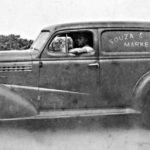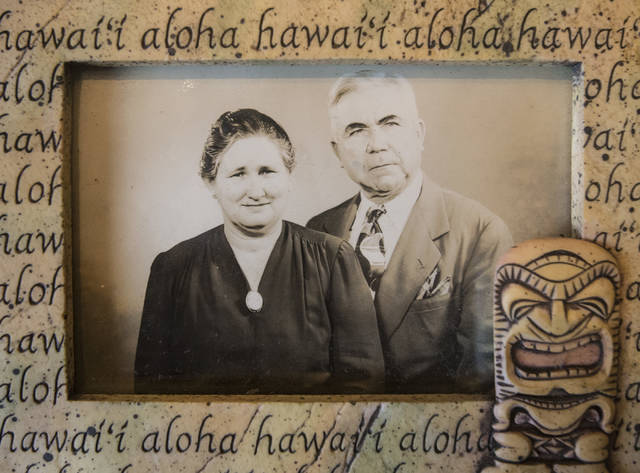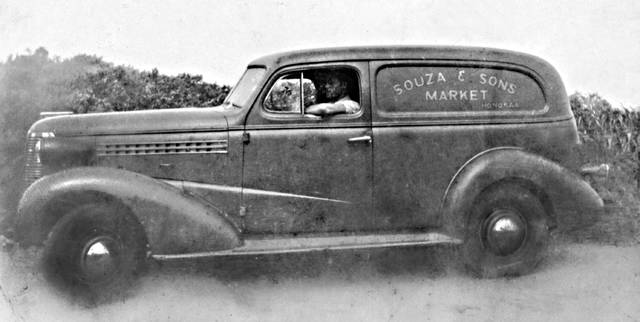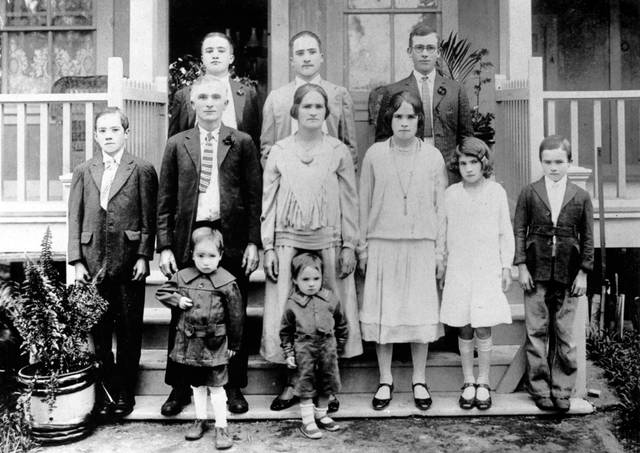On Sept. 30, 1878, the S.S. Priscilla, a three-masted wooden sailing ship, arrived in Honolulu Harbor from Funchal, Madeira, after 116 days at sea.
The Priscilla, a German barque, carried precious cargo — Hawaii’s first Portuguese immigrant families, who came to work on the sugar plantations as contract laborers. The number of arrivals is up for debate. According to the harbormaster’s log, there were 80 men, 40 women and 60 children for a total of 180 passengers, although Portuguese consular documents indicate a total of about 120 passengers.
They weren’t the first Portuguese in Hawaii, as there are accounts of Portuguese sailors jumping ship in the islands as early as 1794. In addition, a Portuguese adventurer, John Elliot de Castro, came to Hawaii in 1814 and became a retainer of King Kamehameha the Great, but left two years later.
The Priscilla, however, marks the beginning of organized Portuguese immigration to the islands, and the Hawaii Island Portuguese Chamber of Commerce is commemorating its arrival of with a series of events called “Saudades: the Longing.”
“The Portuguese, like all immigrants, when they left their home, they longed for their family and friends and the home they left behind. But they left their homes because of their longing for a new life, so it’s bittersweet. And that’s why we call it ‘saudades’ — which is a very special word for the Portuguese,” said Marlene Hapai, president of the HIPCC Cultural and Educational Center, for which ground will likely be broken sometime in spring.
A blessing for the future center’s site, at the corner of Komohana and Ponahawai streets in Hilo, is set for 2 p.m. Sunday, with a reception and celebration at 3 p.m. at Aunty Sally Kaleohano’s Luau House.
“We’re going to bless it because we’ll be blessing it on the 140th anniversary day,” Hapai said.
A number of events will lead up to the blessing and reception.
At 3:45 p.m. Friday at the ‘Imiloa Astronomy Center Planetarium in Hilo will be the premiere showing of the documentary film “Portuguese in Hawaii” by Nelson Ponta Garca of Radio and Television of Portugal International. Tickets for the screening are $10.
In addition, from 3:45-9 p.m. at ‘Imiloa’s Moanahoku Hall is the Founders Ball, a fundraiser for construction of the cultural and educational center featuring Azorean-born entertainer Carlos Avalon, whose solo career started in 1974 at the then-Naniloa Surf Hotel in Hilo.
An islandwide traveling presentation, which is free, open to the public and includes exhibits and living history will make stops at North Hawaii Education and Research Center in Honokaa from 11 a.m.-2 p.m. Saturday, and at 3 p.m. Sunday as part of the reception and celebration at Aunty Sally’s. The traveling show has already hit Kona and Pahala.
After the Priscilla, other ships brought more Portuguese to Hawaii, mostly from Madeira and the Azores, and by 1911, there were about 16,000 Portuguese in the islands.
Marie Ho of Honokaa, a fourth-generation Portuguese, counts herself among the few full-blooded Portuguese remaining here.
“There are really few pure Portuguese left because many of them assimilated and intermarried,” Ho noted.
Many of the Portuguese men became lunas, or overseers, on the plantations.
“They were skilled laborers when they arrived,” she said. “And since they were skilled, they were put in the position of the skilled laborer, which would be the luna or other skilled positions. Since they had skills, they didn’t have to (work) in the cane fields.”
In addition, the Portuguese brought a small stringed instrument, the braguinha, which Hawaiians adopted and called the ‘ukulele.
“The Spanish brought the guitar, but the ‘ukulele was a Portuguese thing. Hawaiian music was changed, and the world was changed, forever because of the ‘ukulele,” Ho said.
The Portuguese, like the other nationalities who came to work on the plantations, also left their mark on island cuisine.
“The Portuguese are credited for bringing baked goods in Hawaii because of the forno,” Ho said, referring to a wood-fired brick oven. “Before that, in Hawaii, there really were no ovens. The Hawaiians had the ‘imu and the missionaries cooked with the iron pots with the lid, the Dutch ovens. Sweet bread and malasadas are a tradition we carry on.”
On Shrove Tuesday, aka “Fat Tuesday,” the day before the start of Lent on Ash Wednesday and the ritual fasting of the Lenten season, malasadas have become such a popular item the day is now known in Hawaii as “Malasada Day.”
A Catholic tradition that is uniquely Portuguese, the Feast of the Holy Ghost, which originated with the sixth Queen of Portugal, Isabel, is still celebrated in several Hawaii parishes, including Our Lady of Lourdes Catholic Church in Honokaa.
Jackie Pualani Johnson grew up with a full-blooded Portuguese mother and a father who had Portuguese blood, as well. She compiled oral histories into the living history section of the traveling show. Actors will play Johnson’s maternal grandfather, Edward Soares Medeiros, Dolores Tavares, a Pahoa-born woman of full-Portuguese descent, and Norbert and Erma Serrao, a couple Johnson described as still having “a touching tenderness about them after five decades of marriage.”
“Even after 50 years, there was not even a smidge of anything like impatience or even teasing each other in a jocular way. Not a smidge of that,” Johnson said. “Both of them talk about their work was a prime commitment and how it affected how they raised their family. In a good way. Erma, for instance, was working at Pahoa School with kids who needed special help and took all of these workshops on how to deal with children. And it carried over into their family, the sense of continuity you take home. You’re not done with work when you’re at home; you don’t lock it on a shelf and leave it.”
Johnson noted “basic values that permeate” the Portuguese community.
“The family is at the core. And hard work. My grandpa worked at Hilo Iron Works for 50 years and never missed a day. Not one,” she said.
Tavares, who lives in Wainaku with her son, Michael, is still active physically and mentally and could pass for two decades younger than her 90 years. Her husband, Victor, died in 2003 at age 81.
“I’m very proud to be Portuguese,” she said. “We have a beautiful heritage, historical. We should be very proud of that. I’ve been to Portugal three times. We’ve seen the monument of the navigators (Padrão dos Descobrimentos in Lisbon) with the (compass) on the ground. They still go to Portugal from other nations to study navigation today.”
Johnson described the Portuguese immigrants who crossed two oceans to arrive in Hawaii as “incredibly resilient people.”
“These are people who were courageous enough to leave the subtropical islands off Portugal in the Atlantic and take that 150-day-and-then-some journey, treacherous as can be, to come to another place that is similar, quite similar to where they came from, to start a new life.”
For documentary tickets and tickets and tables for the Founders Ball, contact Jean at 938-9283 or alvesj002@hawaii.rr.com.
For more information on the 140th anniversary of Portuguese families arriving in Hawaii, contact Marlene Hapai at 966-9894 or mhapai@aol.com.
Email John Burnett at jburnett@hawaiitribune-herald.com.













